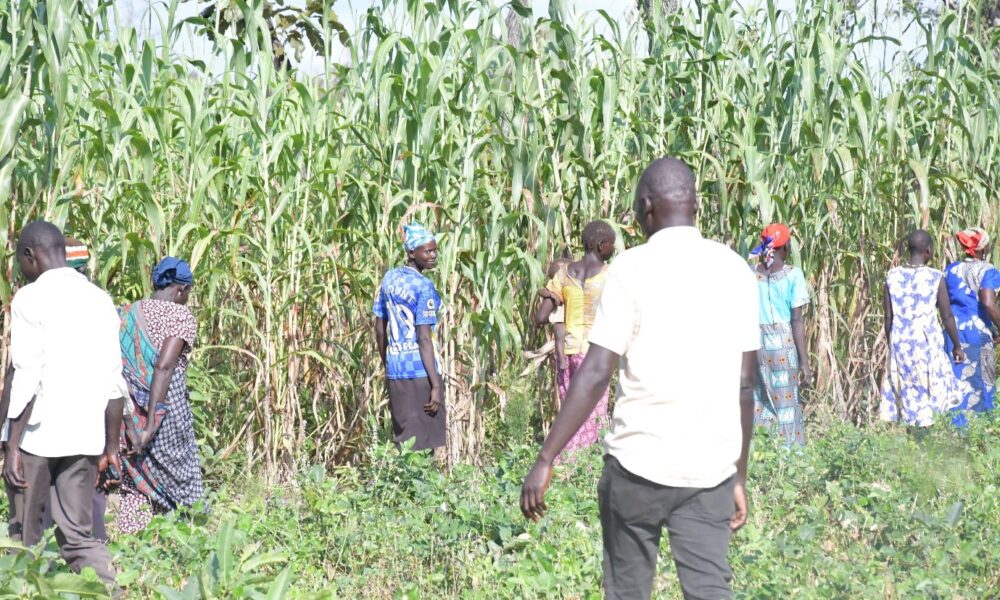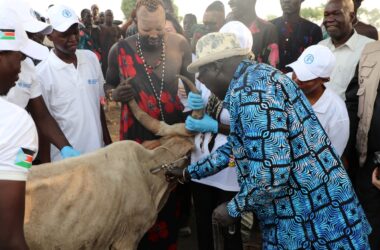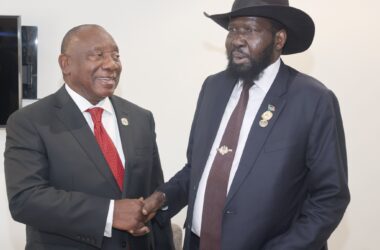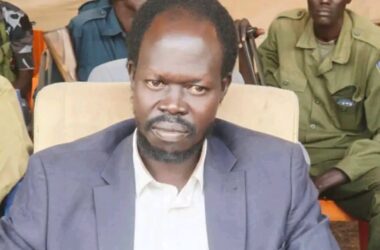By William Madouk
It was afternoon, and the sun cast long shadows across when we visited Mr. Emmanuel Madanga, the chairperson of Mitorodo Farmers’ Cooperative Society at his 138-fedans farm in the Domoloto area, of Wulu County, Lakes State.
Mr. Madanga showed us around his farm, where a variety of crops, including sorghum, beans, sesame, cowpeas, and okra, thrived.
This agricultural farm was made possible under the Food Security and Livelihood (FSL) project implemented by Oxfam in Domoloto and Danyoil-Makada payam of Wulu County.
Funded by Germany’s Federal Ministry for Economic Cooperation and Development (Bundesministerium für wirtschaftliche Zusammenarbeit und Entwicklung (BMZ) and Sweden’s International Development Cooperation Agency (SIDA), the initiative is transforming the lives of smallholder farmers in Lakes State.
The “Building Resilience through Agriculture and Livelihood” project has increased vegetable and crop production in the area.
Smallholder peasants have transitioned from subsistence farming to more commercial-scale production, generating income while ensuring there is food on the table for their families after being supported by donors.
Farmers like Emmanuel Madanga, are reaping the benefits of the project
“In 2023, this farm was 28 fedans and we expanded it this year to 138 fedans through support from Oxfam,” Madanga said.
“Oxfam in South Sudan supported us with farming tools, tree cutting machine and an ox-plough so that we can expand our farm, they also provided us with seeds and a tricycle to transport our produce,” he revealed.
Mr. Madanga said the assistance has boosted productivity and elevated his group’s livelihood, a Farmers’ society consisting of 35 members both males and females.
“A lot has changed, our children are now studying and we can afford their medical bills, these are some of the positive changes,” he said.
“In our produce from last year (2023), we managed to get SSP 15 million (280 bags),” he added.
Mr. Madanga said he currently supports about 5 kids with their education in Uganda and back home.
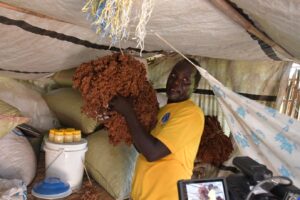
Madanga explained that after harvesting, the crops are divided into three categories: a portion is sold, another is reserved for the next planting season, and the remainder is stored for emergencies.
Of the 300 sacks harvested, 120 are set aside for the next season, with 80 allocated to group members and 100 for emergencies.
Mr. Madanga urged the government and partner organizations to construct more storage facilities for farmers and install grinding machines.
He also appealed to the government to provide tractors to farmers, adding that this would boost productivity and eliminate food insecurity.
Furthermore, Madanga expressed concern about the lack of a nearby water source, stating that water scarcity hinders agricultural activities in the Domoloto area.
He expressed gratitude to Oxfam and other donors for their support.
Although the farm is now partially self-reliant, he urged donors to continue partnering with farmers for several more years.
Joseph Machok, the chairman of the farmers’ cooperative society in Danyoil-Makada stated that his 120 heaters are planted with beans, cowpeas, sesames, cassavas and yams plantation.
He added the farm was established in 2021 as a small-scale farm and “in 2022 we got support from Oxfam with farming tools and grains.
His group consist of 30 farmers of which 16 are female farmers and 14 are male farmers in Danyoil-Makada. They have managed to get SSP 1.5 million from last year’s harvest after they sold out 250 bags.
“Oxfam has provided us with farming tools, six buckets of bean seeds and gumboots,” he noted.
Machok revealed that he borrowed farmers’ cooperative ideas from Wulu payam, especially from the Mitorodo farmers’ cooperative society in the Domoloto area.
He also echoed the issue of the water crisis and pests that destroy their crops, urging urgent intervention.
“I have sent my children to school and also I have managed to sponsor my brothers’ weddings like earlier my children were not schooling,” Machok noted.
Mr. Machok is optimistic about expanding their farm and constructing a store in Rumbek town or Juba to allow them access to the market.
“Let the government support farmers with tractors. We shouldn’t allow organization to operate alone let government support us too,” he added “Oxfam has trained us and we will continue with our farming activities.”
Mrs Jana Makadiy, a member of the Danyoil-Makada farmers’ cooperative society expressed her happiness to donors, citing that she earned SSP 100,000 from last year’s harvest.
“This money has helped my household needs, 4 children and I bought some goats from that money,” Makadiy added. “I sincerely appreciate the organization and donors that supported us.”
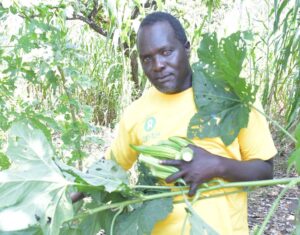
“We are happy as Oxfam in South Sudan because all the projects we are been doing impacted a lot in the people we have supported
“The testimonies come directly from the communities so that is one thing that motive us to do more and provide more need because we have not reached most of the areas, maybe what we have done is 40%,” he added.
Wulu County is located in Lakes State and is the largest county in Lakes. It borders Cueibet County to the north, Rumbek Centre and Rumbek East Counties to the northeast, and Yirol West County to the east.
It also borders Warrap State (Tonj South County) to the northwest and Western Equatoria State to the west, south and southeast. The Gulnam and Roah rivers flow through the county.
The people of Wulu County Lakes State predominantly practice agriculture and fishing, with many households also supplementing their livelihoods by rearing animals (such as goats, sheep and poultry).
While the Belle and Bongo are the majority within the county, they are minorities within Lakes States. An estimated 80% of households engaged in agriculture in Wulu County in 2018 (FAO/WFP 2018).

